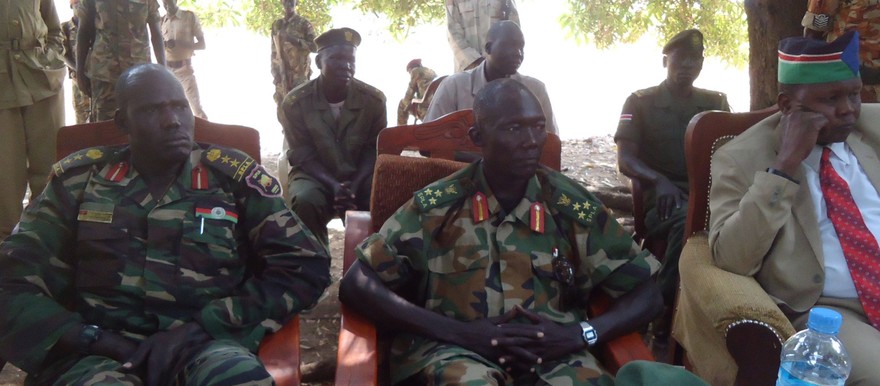Maban County in eastern Upper Nile State has returned to normal after a fight among a few soldiers, according to the top government official in the area.
Other parts of the state have been rocked by violence, including the capital Malakal, Nasser and Panyikang counties. Defected troops and loyalists of ousted vice president Riek Machar control significant parts of the state.
County Commissioner James Basha Tiwa speaking over Radio Tamazuj says that people should remain calm and return to their homes.
“After the events that happened in Upper Nile State, we in this county are doing fine. There were some small disturbances which caused the citizens to run away from their homes, but now they are returning to their homes without any problems,” he said.
He explained, “Two days after the events that happened in Juba, an SPLA soldier from Bor area tried to blow up a grenade at some of his colleagues. It injured three soldiers and they were taken to the hospital. They did not die. But then he killed himself.”
The incident happened about a kilometer from Bunj, the county seat. According to the commissioner, after several hours hiding in the forest people decided to come back because the conflict did not spread.
“That may be what caused the people in the refugee camps to be afraid and to run. But I as commissioner gave messages to be given by microphone (loudspeaker) to go back, that the event was not something big,” he added.
Some aid organizations are still present in Maban County, including CARE, Oxfam Great Britan, and Medair, though services may be scaled down.
There are 122,532 registered refugees in the county, according to UNHCR data. They came from Blue Nile State of Sudan since the outbreak of conflict there in 2011, and are hosted at Doro, Yusuf Batil, Kaya and Gendrassa refugee camps.
Recently it was reported that newly displaced people were also arriving in Maban from other parts of Upper Nile, but the commissioner downplayed the report, saying it was only “a few families” who had come to the area.
File photo: Civil and military officials in Bunj, Upper Nile State, January 2013 (Radio Tamazuj)




